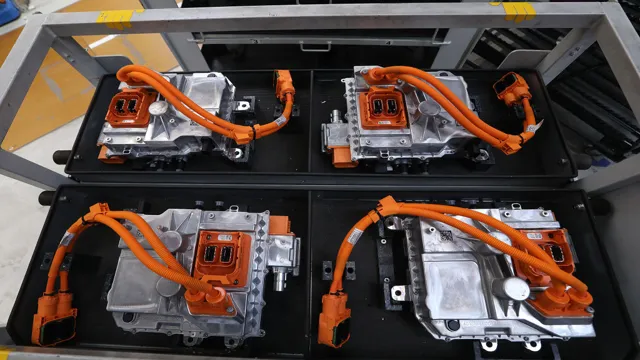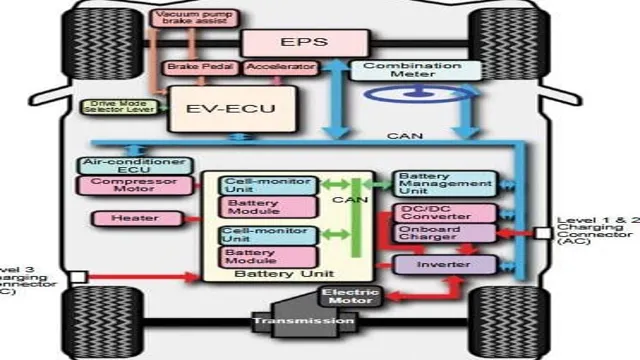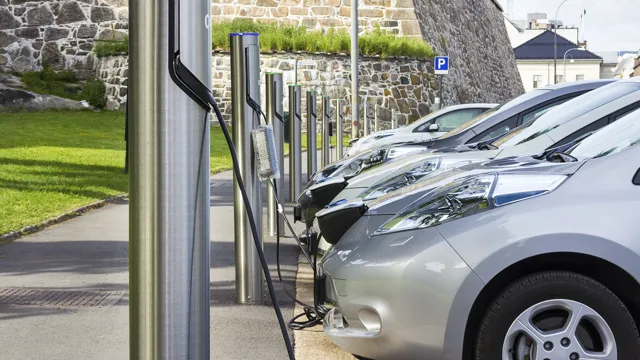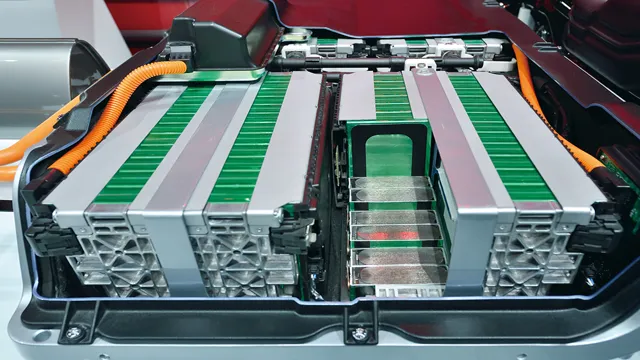Unlocking the Truth About Electric Car Battery Charging Cost: Everything You Need to Know
Have you ever wondered about the cost of charging your electric car? As electric cars continue to gain popularity, more and more people are considering making the switch to electric. One of the biggest concerns for EV owners is charging costs. After all, you don’t want to be left stranded on the side of the road with an empty battery.
In this blog, we’ll explore the various factors that affect the cost of charging your electric car and help you understand how much you can expect to pay. From the type of charger you use to the time of day you charge your car, we’ll cover it all. So let’s dive in and break down the costs of charging your electric vehicle!
Average Electricity Rates
Electric car battery charging cost can be influenced by the average electricity rates in a particular location. On average, electricity rates in the United States are around 13 cents per kilowatt-hour (kWh). These rates may vary depending on the state and region.
For instance, Hawaii has the highest average electricity rate in the country at around 33 cents per kWh, while Louisiana has one of the lowest at around 9 cents per kWh. Therefore, owners of electric cars should factor in the average electricity rate in their area when estimating the cost of charging their vehicle’s battery. Ultimately, when electricity rates are high, charging an electric car may cost more than refueling a traditional gasoline car.
However, electric cars still offer a cost-effective option in the long-run for drivers seeking to save on gas and reduce their carbon footprint.
Breaking Down Kilowatt-Hours
When it comes to your electrical bill, it can be confusing to understand how your usage is measured and what exactly you are paying for. One measurement that is often used is kilowatt-hours (kWh), which is a unit of energy consumption. The way this works is that if you have a 1,000-watt appliance and you use it for an hour, you would have consumed 1 kWh of energy.
The average electricity rate varies depending on where you live, but according to recent data, the average rate in the United States is 131 cents per kWh. This means that if you use 1,000 kWh of energy in a month, your bill would be approximately $13
However, keep in mind that electricity rates can fluctuate depending on the time of day, season, and demand. It’s always a good idea to monitor your energy usage and be mindful of your habits to help keep your bill under control.
Comparing Electric vs. Gasoline Costs
When it comes to comparing the costs of electric and gasoline vehicles, one of the key factors to consider is the average electricity rates in your area. These rates can vary widely depending on where you live, and can greatly impact the overall cost of owning an electric car. In general, areas with higher electricity rates will see higher costs associated with charging an electric car, while those with lower rates will benefit from lower costs.
To get an accurate picture of the costs in your area, it’s important to do some research and understand how your local electricity rates are structured. You may also want to look into incentives and rebates that can help offset the costs of owning an electric car. Ultimately, by taking the time to understand the factors that impact the costs of electric and gasoline vehicles, you can make an informed decision about which option makes the most sense for your needs and budget.
Factors Affecting Charging Costs
One major factor that affects the cost of charging an electric car’s battery is the time of day at which you charge it. During peak hours, when the demand for electricity is high, the cost of charging also tends to be higher. On the other hand, charging during off-peak hours, such as overnight, can result in significantly lower electricity rates.
Another factor that can affect the charging cost is the location of the charging station. Some charging stations may charge higher fees than others, depending on where they are located and who operates them. It’s important to research different charging stations and compare pricing options before deciding on where to charge your car’s battery.
Overall, several factors can impact the cost of charging an electric car’s battery, but by keeping an eye on peak hours and choosing the right charging station, you can help keep your charging costs to a minimum.
Battery Capacity
Battery capacity is an important factor if you want to reduce charging costs. You may think that having a larger battery capacity will lead to increased charging costs, but this is not always the case. The charging cost depends on the amount of energy that the battery stores and the price of the electricity used to charge the battery.
If you have a small battery and use a lot of energy, then the charging cost will be higher. On the other hand, if you have a larger battery and use less energy, then the charging cost will be lower. This is why electric vehicles with larger battery capacities are often more expensive but have lower charging costs in the long run.
It’s important to balance the battery capacity with your daily energy usage to determine the most cost-effective option for you. Overall, battery capacity plays a vital role in reducing charging costs, and it’s important to understand the factors that affect it.
Charging Equipment
When it comes to the cost of charging your electric car, several factors come into play. The first and most obvious factor is the cost of the electricity itself. The electricity rate may vary depending on the time of day and location, with some charging stations offering free or discounted charging.
However, the charging speed also affects the cost. Rapid charging is more expensive than slow or standard charging, although it can get you up and back on the road more quickly. Another factor to consider is the type of charging equipment used.
Some charging stations require adapters or may be incompatible with your car model, which can add to the cost. Furthermore, the age and condition of your electric vehicle battery affect how much energy it can store and how long it can hold a charge, so keep this in mind when charging your EV. So, aside from these factors, you may want to explore additional fees charged by your electricity company or charging station service providers, such as network fees or transaction fees, which can marginally increase the charging costs.
At the end of the day, factors affecting charging expenses would always depend on how we use our electric cars.
Time of Use Rates
If you’re thinking of switching to time of use rates for charging your electric vehicle, there are several factors that can affect the overall cost. These rates vary during specific times of the day, with peak and off-peak hours having different rates. One of the primary factors that can make a difference in your charging costs is the time of day you choose to charge your vehicle.
Charging your EV during off-peak hours can result in lower rates, while charging during peak hours will cost you more. Additionally, the overall duration of the charging session and the charging speed can also play a role in determining the final billing amount. If you have a smart charging system installed, it can help you identify the most cost-effective charging times and optimize your charging sessions accordingly.
By considering these factors, you can ensure that you’re only paying what’s necessary for charging your electric vehicle and enjoying the cost savings that come with time-of-use rates.
Saving Money on Charging Costs
Electric car battery charging cost can be a significant factor to keep in mind when considering the purchase and use of an electric vehicle. There are, however, a few ways in which you can reduce these costs. One is to take advantage of off-peak hours, where electricity rates are typically lower.
Charging your car after midnight or during weekends can save you a significant amount compared to charging during peak hours. Another way is to invest in a home charging station. Not only does this allow for convenient charging in the comfort of your own home, but it can also be cheaper than using public charging stations.
In addition, some electric vehicle manufacturers offer free charging for a limited time as a promotional offer, so keep an eye out for those deals. By being mindful of your charging practices and taking advantage of cost-saving opportunities, you can save money in the long run while driving an eco-friendly vehicle.
Public Charging Stations
Public charging stations are an excellent way to save money on charging costs for your electric vehicle. These charging stations are becoming more common in public areas such as parking lots, shopping centers, and even rest areas on highways. One of the great benefits of using these charging stations is that they are often free or significantly cheaper than charging at home.
Furthermore, many cities and states have implemented incentives for businesses to install public charging stations, making them even more accessible. By using these public charging stations, you can save money on your electric bill and reduce the environmental impact of your vehicle. So, the next time you’re out and about, be sure to check for public charging stations nearby to take advantage of this cost-effective and eco-friendly option.
Smart Charging Strategies
If you’re an electric vehicle owner, finding ways to save money on charging costs is probably on your mind. One smart charging strategy is to take advantage of off-peak electricity rates. Many utility companies offer lower rates during certain hours of the day or night, making it more affordable to charge your vehicle.
Planning ahead and scheduling your charging sessions during these off-peak hours can lead to significant savings over time. Another approach is to invest in a home charging station, which can often be used to schedule charging during off-peak hours. Additionally, being mindful of your driving habits and ensuring your battery is not fully depleted before charging can help maximize the charging efficiency and help save on costs.
By utilizing these smart charging strategies, electric vehicle owners can keep their charging costs in check while enjoying all the benefits of driving an eco-friendly car.
Conclusion
In conclusion, electric car battery charging costs are not only environmentally friendly, but also economically smart. While there may be initial costs for installing home charging stations, the overall savings on gas and maintenance expenses make up for it in the long run. So why not make the switch to electric cars and enjoy the monetary benefits while also helping to save the planet? Your wallet (and the Earth) will thank you!”
FAQs
What is the average cost of charging an electric car battery?
The average cost of charging an electric car battery is around $0.12 to $0.21 per kWh, depending on the location and time of day.
How long does it take to fully charge an electric car battery?
It usually takes around 4 to 8 hours to fully charge an electric car battery with a Level 2 charger, and around 30 minutes to 1 hour with a Level 3 charger.
Can I install a charging station for my electric car battery at home?
Yes, you can install a Level 2 charging station for your electric car battery at home, which will allow you to charge your car faster and more conveniently.
Are there any discounts or incentives available for electric car battery charging?
Yes, there are various state and federal incentives available for electric car owners, such as tax credits, rebates, and grants, that can help offset the cost of charging and owning an electric car.






